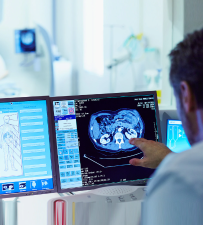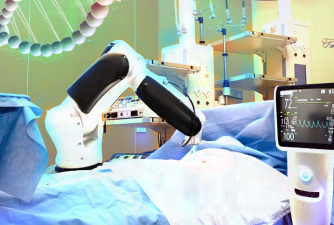At present, human beings have become more mature in their mastery of artificial intelligence (AI) technology, and their exploration has become more profound. More and more AI technologies are gradually being used by users and becoming close partners in the development of all walks of life. As AI is increasingly used in the medical field, it will inevitably have an impact on the progress of various medical reforms. With the advent of the AI era, what kind of help will medical reform get from new technologies?

Artificial intelligence (AI) has a wide range of applications and potential in the healthcare industry, and it is changing the way and efficiency of healthcare. Here are several aspects of how AI affects the healthcare industry:
1. Auxiliary diagnosis and medical image analysis:
AI can analyze medical images to help doctors diagnose diseases quickly and accurately. It can identify potential lesions and abnormalities, provide more accurate results, and reduce the risk of misdiagnosis and missed diagnosis.
2. Intelligent health monitoring and prevention:
Through smart wearable devices and sensors, AI can collect personal health data, such as heart rate, blood pressure, blood sugar, etc., monitor health status in real time, and provide early warnings and suggestions. It can help people better manage their health and prevent the occurrence of diseases.
3. Drug development and personalized treatment:
AI can accelerate the drug development process, quickly screen potential drug candidates and optimize drug design through big data analysis and machine learning algorithms. In addition, AI can also provide personalized treatment plans based on individual genes and disease characteristics, improve treatment effects and patients' quality of life.
4. Medical robots and surgical assistance systems:
AI can be used to develop medical robots and surgical assistance systems to achieve precise manipulation and operation, and improve the accuracy and safety of surgery. It can assist doctors in complex operations and reduce surgical risks and recovery time.

5. Electronic medical records and data analysis:
AI can improve the quality and availability of medical records, and automatically extract and analyze useful information in electronic medical records through natural language processing and data mining technology, providing doctors with better decision support and clinical guidelines.
However, the application of AI in the healthcare industry also faces challenges. First, data privacy and security issues need to be addressed to ensure the protection of personal health data. Second, the accuracy and credibility of AI systems need to be further improved to reduce the risks of misdiagnosis and missed diagnosis.
In addition, medical professionals need to receive corresponding training and education to better adapt to and use AI technology. AI is changing every aspect of the healthcare industry, from diagnosis, treatment, prevention to management, with the potential to improve efficiency and quality. With the continuous advancement of technology and the expansion of its applications, I believe AI will bring people better healthcare experience and health outcomes.
